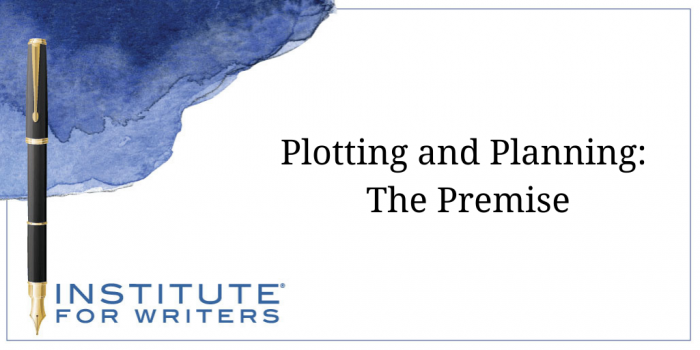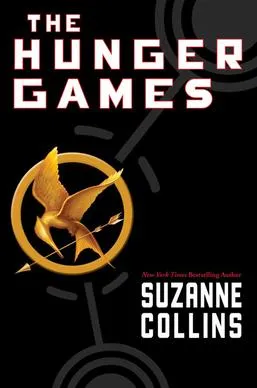1000 N. West Street #1200, Wilmington, DE 19801
© 2024 Direct Learning Systems, Inc. All rights reserved.

The shiny new idea appears. It sparkles. It glitters. It glows. Sometimes it’s perfect for microfiction, guaranteed to deliver an intense experience with a twist that will linger with the reader. At other times, it can carry hundreds or even thousands of pages.
New story ideas can arrive in the form of an intriguing character, an unusual situation, a fascinating setting, or some combination of the three. Possibilities abound. Myriad roads rise up for your protagonist to travel down.
When this flash of inspiration comes, it’s important to jot down notes about where your project could go. But before you plunge into writing the first chapter or outlining the plot, consider taking some time to put your basic premise through a stress test. Since novels need plausibility, originality, and emotional appeal in order to entice readers, agents and editors, you’ll emerge with a stronger plot. If the premise isn’t quite there yet, don’t worry. You can build it up into something alluring.
Even the most imaginative novels of fantasy, science fiction, and magical realism have to feel grounded. So do works set on Main Street, Wall Street, or Capitol Hill. No matter what kind of technology or sorcery or financial chicanery is involved, the story has to deal with the human condition in some way that feels true.

Readers also have to feel like the protagonist’s original circumstances and initial choices make sense in context or they won’t go past the flap copy. After that, execution is key. Maybe the setup seems possible in the marketing materials, but it also has to work between the covers. I remember reading a fantasy novel by an author that I’d enjoyed in the past. When I reached the end of the first act, my writerly side interrupted with the following brief exchange:
Question: Why did the main character get into the boat?
Answer: Because the author needed her to do so.
There can be no worse answer to any question a reader might have about the protagonist’s motivation. None. I did finish the book, but every subsequent scene was poisoned by the knowledge that the character had no logical reason to embark on her adventure. In fact, she had every reason not to do so. With a bit more plotting and planning to set up the characters and the circumstances, the author probably could have put the protagonist on the boat and brought me along.
In her novel O Pioneers!, Willa Cather wrote, “There are only two or three human stories, and they go on repeating themselves as fiercely as if they had never happened before.” But opinions vary. Some people think that there are millions of plots. Others have narrowed it down to seven, ten, or twenty. And then there are those who assert that there’s just one: “A stranger comes to town.”

When The Hunger Games burst onto the scene, I remember feeling underwhelmed by the premise. Sending a certain number of young men and women to their deaths as a part of a tribute is a tale that storytellers have been exploring since Theseus met the Minotaur in the labyrinth of King Minos. The battle to the death has also been a favorite situation from ancient civilizations in the past to those only imagined in the future. I’d seen it done repeatedly in film and on the page. But it probably did sound fresh to a lot of readers, and there was a topical tie-in with the popularity of reality shows like Survivor.
When I did finally pick up The Hunger Games, I realized just how skillfully Suzanne Collins had built up the basic premise with carefully researched detail while creating immediate sympathy for the extremely prickly Katniss Everdeen. The heart of the emotional appeal was embedded in the official library description:
“In a future North America, where the rulers of Panem maintain control through an annual televised survival competition putting young people from each of the twelve districts against one another, sixteen-year-old Katniss’s skills are put to the test when she voluntarily takes her younger sister’s place.”
Now there’s a creative decision that silently haunts every page. It gives an enormous amount of power to the initial premise, and then Suzanne Collins’ writing delivers on its promise.
Kristin Wolden Nitz has had sixteen different addresses in eight different states since graduating from college. When she tells friends and family that she’s not moving again, they laugh. Kristin splits her time between writing novels and serving as one of our instructors. Kirkus described her novel Suspect as “intriguing, suspenseful fun.”
1000 N. West Street #1200, Wilmington, DE 19801
© 2024 Direct Learning Systems, Inc. All rights reserved.
1000 N. West Street #1200, Wilmington, DE 19801
© 2024 Direct Learning Systems, Inc. All rights reserved.
1000 N. West Street #1200, Wilmington, DE 19801
© 2024 Direct Learning Systems, Inc. All rights reserved.
1000 N. West Street #1200, Wilmington, DE 19801
© 2025 Direct Learning Systems, Inc. All rights reserved.
1000 N. West Street #1200, Wilmington, DE 19801
©2025 Direct Learning Systems, Inc. All rights reserved. Privacy Policy.
5 Comments